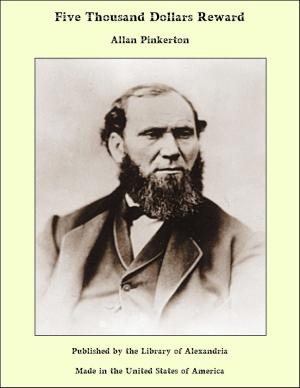Our Campaign Around Gettysburg: Being a Memorial of What Was Endured, Suffered and Accomplished by the Twenty-Third Regiment (N. Y. S. N. G.) and Other Regiments Associated With Them
Nonfiction, Religion & Spirituality, New Age, History, Fiction & Literature| Author: | John Lockwood | ISBN: | 9781465524140 |
| Publisher: | Library of Alexandria | Publication: | March 8, 2015 |
| Imprint: | Language: | English |
| Author: | John Lockwood |
| ISBN: | 9781465524140 |
| Publisher: | Library of Alexandria |
| Publication: | March 8, 2015 |
| Imprint: | |
| Language: | English |
If any one, taking up this book casually, should wonder why it was written, it may suffice to observe that "Gettysburg" is probably destined to mark an Epoch of the Republic;—as being one of the very few decisive battles of the Great Rebellion. Accordingly, whosoever took any part in it may hope to share its immortality of glory. But, says one, the militia were not engaged in the battle. True; neither was the reserve of eleven thousand men, under General French, at Frederick and elsewhere. Yet who would withhold from these veterans the honor of having been participators in the great struggle? They had their part to play—not so direct, nor conspicuous, nor important a part as they played whose valor won the day, yet important withal. Enough for the militia, they offered their lives for the Fatherland, and stood instant, waiting only for orders to hurry into the front of battle. To the militia force, mainly of the cities of New York and Brooklyn, was from the first entrusted the defence of the valley of the Susquehanna. The Army of the Potomac could afford no protection to Harrisburg and the rich agricultural regions lying around it. For General Hooker, notwithstanding his vigilance and activity, had not prevented the advance corps of the enemy, under General Ewell, from penetrating to the very banks of the Susquehanna. Whether or not he cared to prevent it, is not here considered. A little later, to be sure, Lee became evidently alarmed on account of his extended line and made haste to contract it. But during the few days of panic that intervened between the first appearance of the enemy along the Susquehanna and their hasty departure therefrom, nothing stood between them and Harrisburg save the militia, whom General Halleck in his Official Report reviewing the military operations of the year 1863, saw fit to allude to as follows:— "Lee's army was supposed to be advancing against Harrisburg, which was garrisoned by State militia, upon which little or no reliance could be placed
If any one, taking up this book casually, should wonder why it was written, it may suffice to observe that "Gettysburg" is probably destined to mark an Epoch of the Republic;—as being one of the very few decisive battles of the Great Rebellion. Accordingly, whosoever took any part in it may hope to share its immortality of glory. But, says one, the militia were not engaged in the battle. True; neither was the reserve of eleven thousand men, under General French, at Frederick and elsewhere. Yet who would withhold from these veterans the honor of having been participators in the great struggle? They had their part to play—not so direct, nor conspicuous, nor important a part as they played whose valor won the day, yet important withal. Enough for the militia, they offered their lives for the Fatherland, and stood instant, waiting only for orders to hurry into the front of battle. To the militia force, mainly of the cities of New York and Brooklyn, was from the first entrusted the defence of the valley of the Susquehanna. The Army of the Potomac could afford no protection to Harrisburg and the rich agricultural regions lying around it. For General Hooker, notwithstanding his vigilance and activity, had not prevented the advance corps of the enemy, under General Ewell, from penetrating to the very banks of the Susquehanna. Whether or not he cared to prevent it, is not here considered. A little later, to be sure, Lee became evidently alarmed on account of his extended line and made haste to contract it. But during the few days of panic that intervened between the first appearance of the enemy along the Susquehanna and their hasty departure therefrom, nothing stood between them and Harrisburg save the militia, whom General Halleck in his Official Report reviewing the military operations of the year 1863, saw fit to allude to as follows:— "Lee's army was supposed to be advancing against Harrisburg, which was garrisoned by State militia, upon which little or no reliance could be placed















